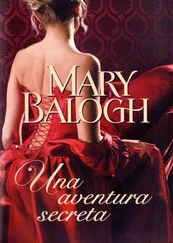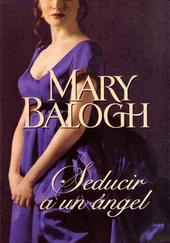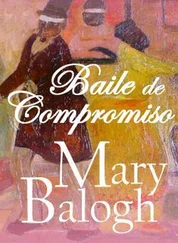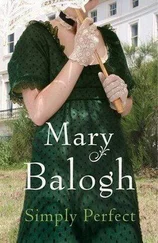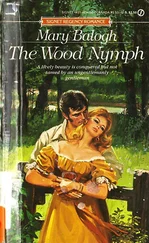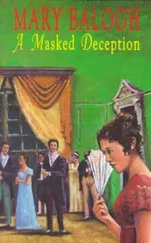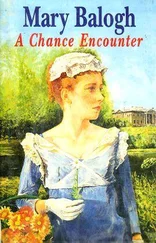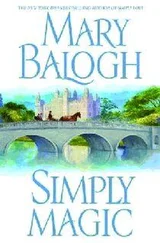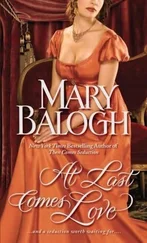Mary Balogh - Simply Unforgettable
Здесь есть возможность читать онлайн «Mary Balogh - Simply Unforgettable» весь текст электронной книги совершенно бесплатно (целиком полную версию без сокращений). В некоторых случаях можно слушать аудио, скачать через торрент в формате fb2 и присутствует краткое содержание. Жанр: Старинная литература, на английском языке. Описание произведения, (предисловие) а так же отзывы посетителей доступны на портале библиотеки ЛибКат.
- Название:Simply Unforgettable
- Автор:
- Жанр:
- Год:неизвестен
- ISBN:нет данных
- Рейтинг книги:4 / 5. Голосов: 1
-
Избранное:Добавить в избранное
- Отзывы:
-
Ваша оценка:
- 80
- 1
- 2
- 3
- 4
- 5
Simply Unforgettable: краткое содержание, описание и аннотация
Предлагаем к чтению аннотацию, описание, краткое содержание или предисловие (зависит от того, что написал сам автор книги «Simply Unforgettable»). Если вы не нашли необходимую информацию о книге — напишите в комментариях, мы постараемся отыскать её.
Simply Unforgettable — читать онлайн бесплатно полную книгу (весь текст) целиком
Ниже представлен текст книги, разбитый по страницам. Система сохранения места последней прочитанной страницы, позволяет с удобством читать онлайн бесплатно книгу «Simply Unforgettable», без необходимости каждый раз заново искать на чём Вы остановились. Поставьте закладку, и сможете в любой момент перейти на страницу, на которой закончили чтение.
Интервал:
Закладка:
And so after a breakfast they might as well not have ordered for the amount either of them ate, they took their leave of each other in the stable yard, he and Frances Allard.
Thomas was already seated up on the box of her carriage, the docile-looking pair of horses hitched to it awaiting the signal to start. Peters, meanwhile, stood at the head of a more frisky pair hitched to the curricle and looked eager to be on his way, though he had looked disappointed when informed this morning that he was not going to be driving the vehicle himself.
Lucius took both of Frances’s hands in his outside the open door of the carriage. He squeezed them tightly, raised one to his lips, and held it there, his eyes closed, for a few moments.
“Au revoir, my love,” he said. “Have a safe journey. Try not to work too hard.”
Her dark eyes, wide and expressive, gazed back into his own as if she would drink in the sight of him in order to slake her thirst for the rest of the day.
“Good-bye, Lucius,” she said. She swallowed awkwardly. “Good-bye, my dearest.”
And she snatched her hands away and scrambled into the carriage without assistance. She busied herself with organizing her belongings while he closed the door, and she kept her head down while he nodded to Thomas and the old carriage lurched into motion.
She kept her head down until the moment when the carriage was turning onto the road and out of sight. Then she looked up hastily and almost too late, raising one hand in farewell.
And she was gone.
But not forever, by Jove.
This was not good-bye.
He was never going to say good-bye to her again.
Even so, he thought as he strode over to the curricle, swung up to the high seat, and took the ribbons from Peters’s hand, it felt like good-bye.
He was damnably close to tears.
“You had better hang on tightly,” he warned as Peters clambered up behind. “As soon as we turn onto the road I am going to spring them.”
“I would think so too, guv,” Peters said. “Some people who aren’t too keen on eating country breakfasts would like to eat their midday meal in London.”
Lucius sprang the horses.

When no betrothal announcement concerning Viscount Sinclair had appeared in any of the London papers within two weeks of his startling announcement in the drawing room at Marshall House, Lady Balderston made it clear to Lady Sinclair in a series of hints and roundaboutations that if Viscount Sinclair would care to make an abject apology, he would be received with forgiveness and understanding. It was said, after all, that half the gentlemen who had attended the concert had fallen in love with Miss Allard—and it was a well-known fact that Viscount Sinclair frequently spoke and behaved impulsively.
When no such abject apology—or any apology at all, for that matter—had been made after another two weeks, Lady Portia Hunt suddenly became the on dit in fashionable London drawing rooms as word spread that she had dismissed the suit of Viscount Sinclair in favor of the advances of no less a personage than the Marquess of Attingsborough, son and heir of the Duke of Anburey, was making toward her. And suddenly, as proof that the gossips did not lie, the two were to be seen everywhere together—driving in Hyde Park, seated side by side in a box at the theater, dancing at various balls.
Lucius meanwhile had not been idle even though he was far less active than he usually was. He spent hours at a time sitting in his grandfather’s apartments, either beside the bed or else in the private sitting room when the elderly gentleman was feeling well enough to get up.
He had, the physician said, suffered another minor heart seizure.
Lucius sat at his bedside the afternoon of his return to London and chafed one of his cold, limp hands between both his own.
“Grandpapa,” he said, “I am sorry I was not here sooner. I have been halfway to Bath and back.”
His grandfather smiled sleepily at him.
“When I called on Mrs. Melford and Miss Driscoll yesterday afternoon,” Lucius explained, “I found that Frances had just left to return to Bath. I went after her.”
“She does not want to sing after all, then,” the earl asked, “even though Heath was so impressed with her?”
“She does,” Lucius told him. “But she is a teacher, and the school and her pupils and fellow teachers are more important to her than anything else at the moment. She does not wish to be away from them any longer.”
His grandfather’s eyes were on his face.
“And she does not want you either, Lucius?” he asked.
Lucius rubbed more warmth into his hand.
“She does,” he said. “She wants me as badly as I want her. But she does not believe she is worthy of me.”
“And you could not persuade her otherwise?” The old man chuckled. “You must be losing your touch, my boy.”
“No, I could not, sir,” Lucius said, “because I did not have the authority to convince her. She will not marry me unless I have the full blessing of my family.”
His grandfather closed his eyes.
“She knows,” Lucius said, “just as well as I do that you have your heart set upon my marrying Portia.”
Those keen eyes opened again.
“It is something Godsworthy and I have talked about over the years as a desirable outcome,” he said. “But you must cast your mind back to Christmas time, Lucius, when I told you that your choice of bride must be your own. Marriage is an intimate relationship—of body and mind and even spirit. It can bring much joy if the partners are committed to friendship and affection and love—and much suffering if they are not.”
“You will not be upset if I do not marry Portia, then?” Lucius asked. “And really, Grandpapa, I cannot. She is perfect in every way, but I am not.”
His grandfather chuckled softly again.
“If I were a young man,” he said, “and if I had not yet met your grandmother, Lucius, I do believe I would have fallen in love with Miss Allard myself. I have been aware of your growing regard for her.”
“She had a sheltered upbringing,” Lucius explained, “but there was no money left after her father died. She fell into the hands of Lady Lyle and George Ralston, of all people. He got her to sign a contract to manage her singing career. You can imagine if you will, sir, the kind of singing engagements he found for her. They were very much less than respectable. He and Lady Lyle raked in the money for a while—supposedly to pay off debts. Fontbridge was courting Frances, but the countess is too high a stickler to look kindly upon his wedding the daughter of a French émigré. Then Lady Lyle took a hand in breaking off the connection—Fontbridge had told Frances she would not be able to sing after their marriage, and doubtless Lady Lyle feared the loss of income. She dropped poison in Lady Fontbridge’s ear. But her plan succeeded too well. Not only did the countess frighten Frances away from Fontbridge, but she also caused her to break away entirely from the life she had been living. She went to Bath without a word to any of them and has been teaching there ever since.”
“My admiration for her has grown,” the earl said. “And the fact that she has returned there now, Lucius, rather than allow herself to be swept away on Heath’s enthusiasm and ours, shows steadiness and strength of character. I like her more and more.”
“It is the poison dropped in the countess’s ear that is of most concern to Frances, though,” Lucius said. “It is that which she sees as disqualifying her most to be my bride. It seems that she was not Allard’s daughter even though he married her mother before she was born—and knew when he married her that she was with child by another man. Frances does not know her real father’s identity but assumes he was Italian, like her mother. Allard acknowledged her at birth and brought her up as his daughter and never breathed a word of the truth to her. But he did tell Mrs. Melford and Miss Driscoll—and Lady Lyle, who I gather was his mistress. By law, then, Frances is legitimate.”
Читать дальшеИнтервал:
Закладка:
Похожие книги на «Simply Unforgettable»
Представляем Вашему вниманию похожие книги на «Simply Unforgettable» списком для выбора. Мы отобрали схожую по названию и смыслу литературу в надежде предоставить читателям больше вариантов отыскать новые, интересные, ещё непрочитанные произведения.
Обсуждение, отзывы о книге «Simply Unforgettable» и просто собственные мнения читателей. Оставьте ваши комментарии, напишите, что Вы думаете о произведении, его смысле или главных героях. Укажите что конкретно понравилось, а что нет, и почему Вы так считаете.

